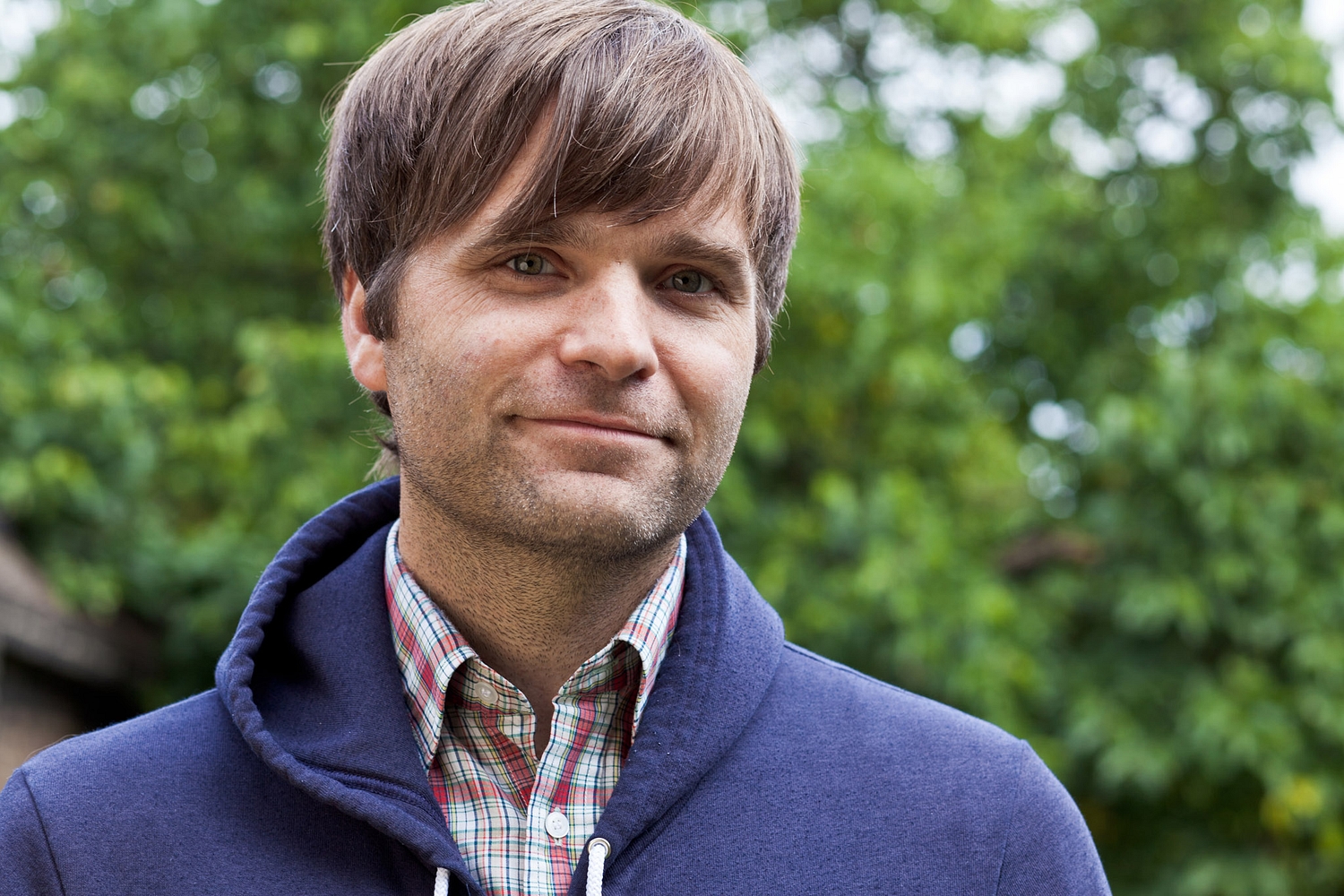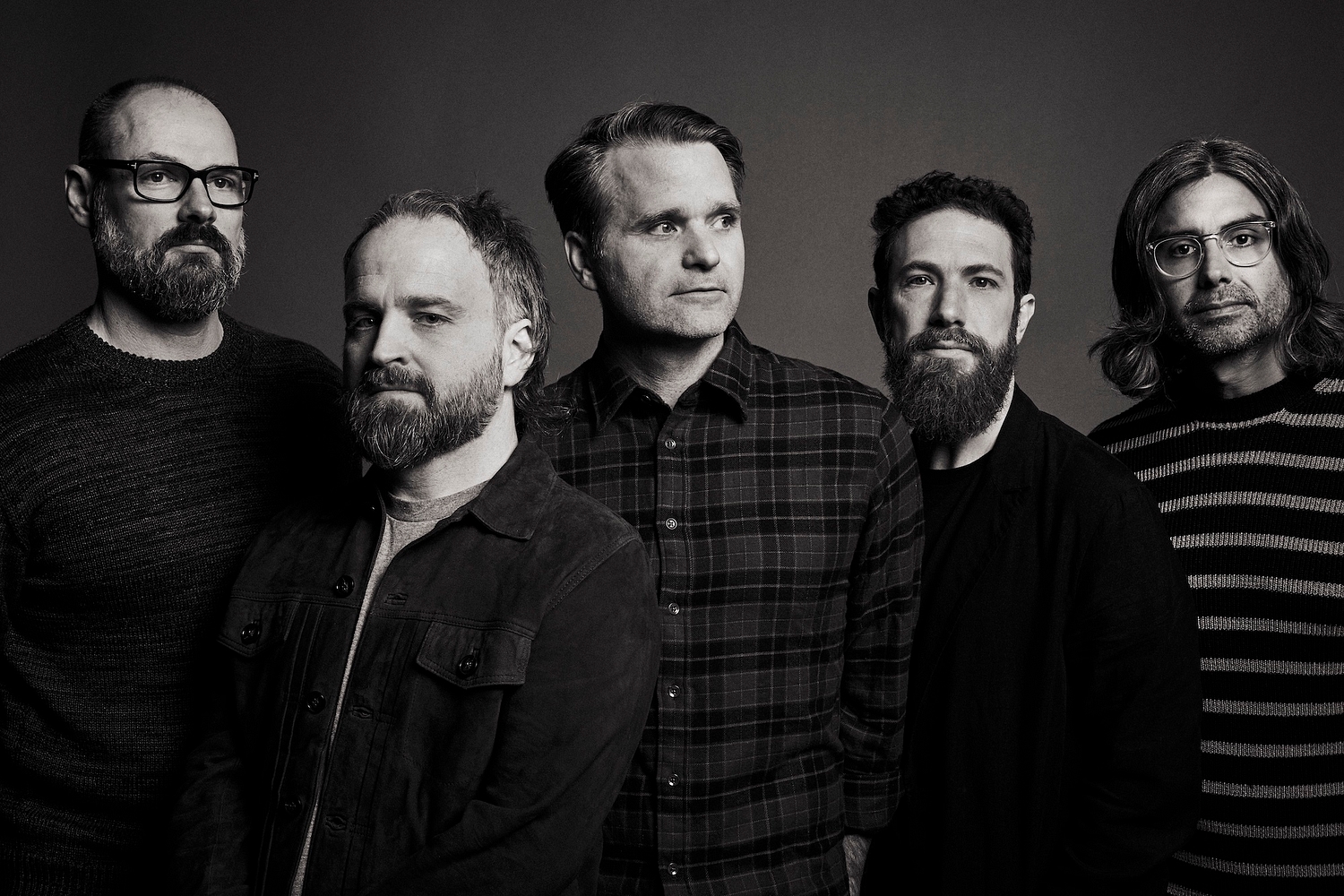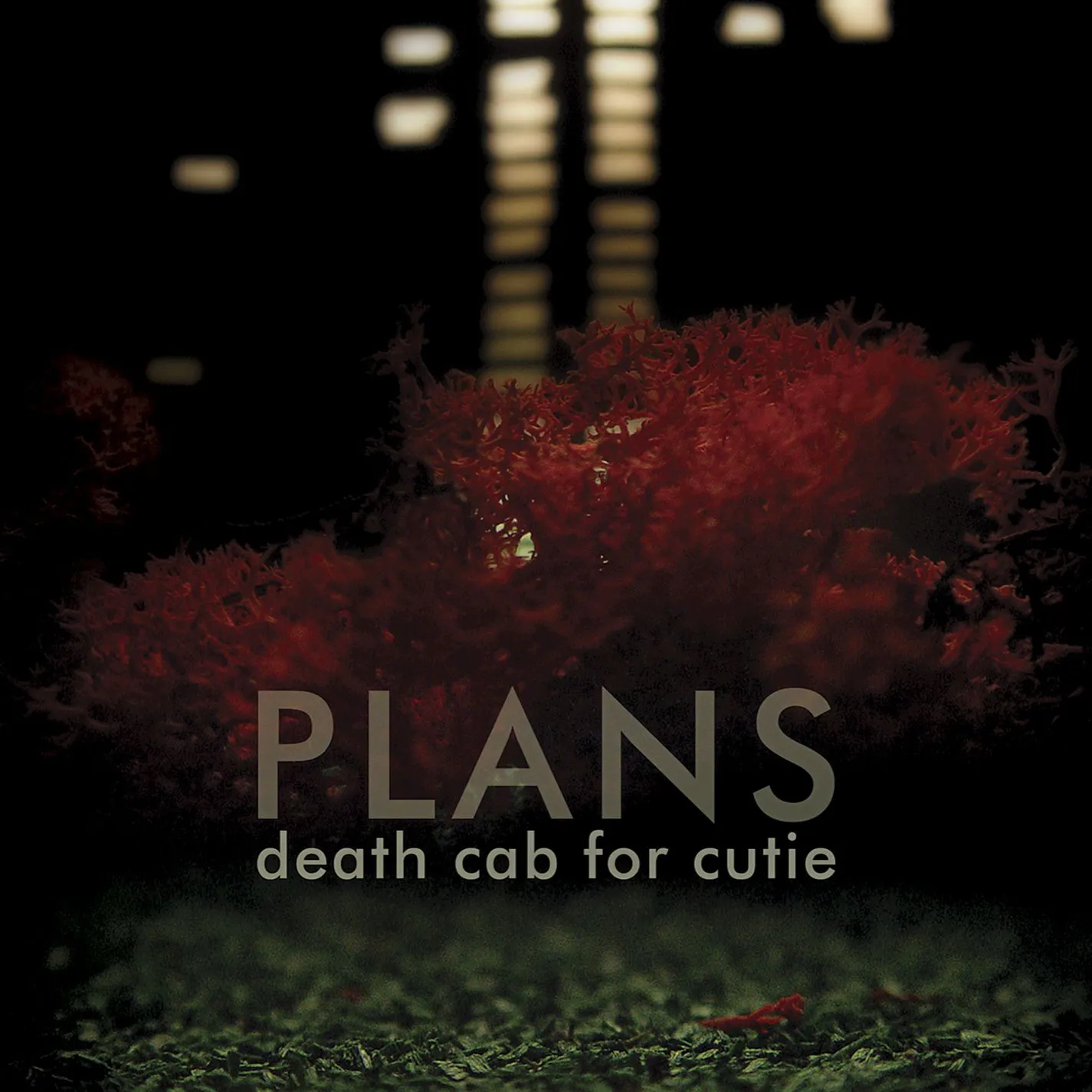
Former lives So you think you know… Ben Gibbard
DIY dips into the extended back catalogue of one of American indie-rock’s most iconic voices.
From borderline cult status, via endlessly rebloggable stints on The O.C. to the stadium-filling behemoth of indie-rock they’ve become, the histories of Death Cab For Cutie and Ben Gibbard are undoubtedly intertwined, but it’s Gibbard’s various extra-curricular activities that have predominantly contributed to their genre-bounding evolution. Floppy-haired and, yes, a-bit-mopey-from-time-to-time though he may be, the enigmatic frontman has more than just an eight-album career in one of indie’s biggest bands up his neatly ironed shirt sleeve.
Dealing with everything from scratchy, bedroom-produced emo to sparkling electronica, Gibbard’s experiments with music have always heralded the arrival of Death Cab’s next left-turn. While the day job may presently harbour a renewed vigour following the release of this year’s ‘Kintsugi’ – “I firmly believe that this record is amongst our best albums. I haven’t been able to say that about every record“ Gibbard confessed to DIY – their next steps are bound to be heavily inspired by Ben’s willingness to toddle off on his own and tinker with new toys.
Below, we delve into the musical development of Ben Gibbard – one of American indie-rock’s most iconic and versatile voices.
Pinwheel
Pinwheel - ‘Honey & Acetylene’
Ben – sorry, ‘Benjamin’ – first found musical solace in scrappy-as-you-like pop-punk quartet Pinwheel. A world away from the Death Cab of 2015’s shiny stadium-ready indie-rock, it was achingly angsty. Recording just the one, six-track record live to tape at Studio X in Bellingham, Washington while still in high-school, Gibbard shares vocal duties, Taking Back Sunday-style, indulging in his finest nasal whine and laughable punk-rock growl. The studio went on to be the home of famed U.S. radio station KEXP, Ben went onto bigger and better things, and Pinwheel remained a dark but hidden blot on Washington’s musical upbringing. That is, until the wonders of the internet dragged the record up once more in 2007, and a whole scene cringed.
It wasn’t an entirely fruitless time though – while playing in Pinwheel, Ben began recording his first solo material. The moniker he chose for that solo material’s first release, 2007’s ‘You Can Play These Songs With Chords’? Death Cab For Cutie.
Death Cab For Cutie - ‘President Of What?’
¡All Time Quarterback!
Around the same time that those Death Cab roots began nestling in, with Ben recruiting Nathan Good, Nick Harmer and Chris Walla on drums, bass and guitar respectively to turn it into a fully-fledged band, Ben kickstarted yet another solo project, this time under the ridiculously-punctuated moniker ¡All Time Quarterback!.
¡All Time Quarterback! - ‘Plans Get Complex’
Lo-fi in the extreme, it was a decidedly different beast to both Death Cab and Pinwheel, Ben experimenting with drum machines and samples for the first time, lending a glitchy edge to their two releases that undoubtedly fed into any number of emo singer-songwriters’ dabbles with electronics. It was a short-lived venture, Ben eventually stopping in 1999 to focus on Death Cab’s second full-length, ‘We Have The Facts And We’re Voting Yes’, as the day job started picking up the pace.
The Postal Service
That ever-increasing pace soon saw Ben’s most prominent side-project bloom. 2001’s ‘The Photo Album’ saw Death Cab begin to creep out of the underground, debut single ‘A Movie Script Ending’ even becoming the first of the band’s tracks to feature on The O.C. It also sparked tensions in the ranks though, with a particularly heated 2002 tour prompting a hiatus before they packed the whole lot in.
Unable to step away from the recording booth, Gibbard began instead using Death Cab’s downtime to begin work on a new project alongside DJ and electronic producer Jimmy Tamborello, otherwise known as DNTEL.
The Postal Service - ‘Such Great Heights’
Exchanging ideas over snail mail – an archaic process that inspired the project’s name – The Postal Service became Gibbard’s first fully-fledged dive into electronica. Pairing that familiar warm vocal with cold, heavily processed electronics, their sole release – 2003’s ‘Give Up’ - laid down the blueprint for the new millennium’s influx of saucy, crooning producers, and as such remains every bit as vital to this day; so much so that a short-lived re-union tour in 2013 prompted sell-outs across the globe. Rumours of a second record abounded even after Death Cab reunited, but despite a few brief exchanges of ideas, eventually fizzled out altogether.
Kind Of Like Spitting
Kind Of Like Spitting - ‘Following Days’
2002 also saw Gibbard lend his multiple musical talents to cult emo favourites Kind Of Like Spitting. Predominantly taking to the drum kit for the entirety of their fifth studio album ‘Bridges Worth Burning’, Gibbard also leant his talents to the odd twinkle of the ivories and backing vocal throughout, making the record the perfect emo’s answer to Where’s Wally?.
Flying solo
Ben Gibbard - ‘Choir Vandals (The American Analog Set cover)’
An acoustic split solo LP with Andrew Kenny of The American Analog Set was released in 2003, the cherry on top of Gibbard’s creative purge, and Death Cab’s reinvigorated state soon became top priority once more. 2009 saw Gibbard indulge a new inspiration though, as he re-worked writing from novelist Jack Kerouac’s Big Sur into lyrics for a new collaborative album with Jay Farrar of Son Volt. ‘One Fast Move And I’m Gone’ was the result, another indulgence in acoustics and piano that saw the two singers’ midwestern tones pair-up with Kerouac’s tale of trips to Bixby Canyon in Big Sur, California while trying to cure his alcoholism – an attempt that led to him falling deeper into addiction’s clutches. The cottage that Kerouac stayed in while writing this novel also housed Gibbard himself in subsequent years – a fact he addresses lyrically in Death Cab’s ‘Bixby Canyon Bridge’, which he wrote in the house itself after embarking on something of a Kerouac pilgrimage.
Ben Gibbard & Jay Farrar - ‘Big Sur’
‘Former Lives’, Ben’s first solo album ‘proper’ was released in 2012 – a collection of songs that span “eight years, three relationships, living in two different places, drinking then not drinking.” Arriving in the wake of his highly publicised split with former wife Zooey Deschanel, it allowed him to exorcise any number of past ideas.
Speaking to DIY around the time of the record’s release, Ben opened up about just that. “I appreciate the passion that a lot of our fan base have about our music,” he said, “and with every record we make, there are people who want it to be something that it just can’t be. I understand that frustration because I have it as well, but the reality it is it can’t be the summer of 1997 and I’m driving around listening to Elliott Smith’s ‘Either / Or’ every day. These are moments in our lives; they’re snowflakes in time. They exist and then, they’re gone.”
Benjamin Gibbard - ‘Teardrop Windows’
Like everything Ben puts his name to, though, ‘Former Lives’ became an integral part of Death Cab’s on-going evolution. In allowing those ideas to be set free, and the slate to be wiped clean, this year’s ‘Kintsugi’ showcased a band able to bask in their newfound creative freedom - even the departure of founding guitarist Chris Walla didn’t hinder them. There’s a long and winding future still ahead of Death Cab For Cutie, and as they move forward, keeping an eye on Gibbard’s movements will, as always, make it easier to follow into both light and dark.
Read More

Gossip, Phoenix, Sleater-Kinney and more to play All Points East 2024
They're part of the just-announced full lineup joining The Postal Service and Death Cab For Cutie in August.
31st January 2024, 2:30pm

Death Cab For Cutie: “I want us to be the best version of what we are”
Death Cab For Cutie frontman Ben Gibbard contemplates the pandemic fuelled existentialism in the band's tenth album, 'Asphalt Meadows'.
17th September 2022, 2:48pm

Death Cab For Cutie - Asphalt Meadows
4 Stars
A record that finds its voice in emerging into musical freedoms found in separation.
16th September 2022, 12:00am

Death Cab For Cutie announce UK and European tour
Their new album ‘Asphalt Meadows’ arrives later this month.
2nd September 2022, 9:40pm
Featuring SOFT PLAY, Corinne Bailey Rae, 86TVs, English Teacher and more!


